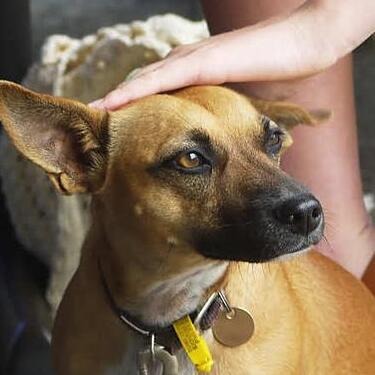
-
Find the right food for your petTake this quiz to see which food may be the best for your furry friend.Find the right food for your petTake this quiz to see which food may be the best for your furry friend.Featured products
 Adult 7+ Small & Mini Chicken & Brown Rice Recipe Dog Food
Adult 7+ Small & Mini Chicken & Brown Rice Recipe Dog FoodFor the unique nutritional needs of mature Small & Mini dogs
Shop Now Adult Small & Mini Lamb Meal & Brown Rice Recipe Dog Food
Adult Small & Mini Lamb Meal & Brown Rice Recipe Dog FoodFor the faster metabolism of Small & Mini dogs
Shop Now Hill's Science Diet Adult Oral Care Chicken, Brown Rice & Barley Recipe Dog Food
Hill's Science Diet Adult Oral Care Chicken, Brown Rice & Barley Recipe Dog FoodClinically proven kibble technology to reduce plaque & tartar build-up
Shop NowFeatured products Adult Urinary Hairball Control Chicken & Rice Recipe Cat Food
Adult Urinary Hairball Control Chicken & Rice Recipe Cat FoodActively supports the health of the whole urinary system
Shop Now Adult Indoor Chicken Recipe Cat Food
Adult Indoor Chicken Recipe Cat FoodSupports energy level and beautiful fur in indoor cats
Shop Now Hill's Science Diet Adult Sensitive Stomach & Skin Dog Food
Hill's Science Diet Adult Sensitive Stomach & Skin Dog FoodHighly digestible recipe, gentle on stomachs. Nourishes skin & promotes a lustrous coat
Shop Now -
Featured articles
 My Pet Ate a Lizard — What Should I Do?
My Pet Ate a Lizard — What Should I Do?Learn what to do if your pet eats a lizard, including whether they can be toxic and symptoms to keep an eye on when they've swallowed one.
Read More 15 Pet-Friendly Cities Ideal for a US Road Trip
15 Pet-Friendly Cities Ideal for a US Road TripCheck out our list of pet-friendly U.S. cities that are excellent travel options, offering off-leash dog parks and pet-friendly restaurants & hotels.
Read More Easy DIY Dog & Cat Toys: Nine of Our Favorites
Easy DIY Dog & Cat Toys: Nine of Our FavoritesBrowse this comprehensive guide for several of our favorite DIY dog and cat toys that are sure to put a little pep in your pet's step.
Read More -

You've fallen in love with a new furry friend at the shelter and you're ready to adopt them. But what do you need to know before welcoming them into your home?
Before bringing a new dog home from a shelter, ask the employees what information they have about the pup's past. They may not know the dog's full history, but uncover as much as you can. The home (or streets) pups come from can shape their temperament and interactions with people. Then, check out these tips on how to prepare your home and family members to help ease your dog's transition to their new life.
Before Bringing a New Dog Home
Set Up a Dog Room and Purchase Supplies
Before adopting a shelter dog, designate one room of your home as canine central. A spare bedroom stocked with canine supplies helps smooth the transition by helping your dog learn about the new house, yard and family in small doses. Must-haves for your dog's homecoming include:
Food bowl and food
Water bowl
Collar with identification tags
Leash and harness
Grooming tools (comb, brush, nail trimmers)
Poop scooper and bags
Potty training pads
Crate
Bed
Toys
If you don't have an entire room to spare, you can segregate one part of the house with a pet gate in a doorway or hall. That way, you can control your dog's environment, prevent wandering into off-limits areas. You can expand their range later when they become more comfortable.
Choose a Veterinarian
Is your new pup your first pet? Research and select a reputable vet in your area and bring your dog in right away for a checkup. If you already have a vet for your pets, contact the office prior to bringing home your new fur baby for their advice on how to give your pup a warm welcome.
Ask your vet about "happiness visits" where your new dog gets to meet and interact with the doctor and staff without rude thermometers or needle sticks.
This can help your dog learn to accept the veterinary clinic as a fun and non-scary part of life.
Consider Nutrition
Choose a dog food based on your vet's recommendation. They can help you match the food to your dog's age, health and any special requirements. You can also ask the shelter what food your dog's eaten in the past. If they previously ate a different food, transition to the new food gradually. A sensitive tummy, or just the stress of everything new, can upset your dog's stomach if you switch too quickly.
Continue feeding your dog what they're used to for the first few days after bringing them home. This will give them time to settle before facing yet another change. When you're ready to make the transition, mix the new recommended food with their old food in equal parts for several days. Then, gradually reduce the old food and increase the new food over the period of a week. They may snub the new food at first, so give them time. Introducing your pet to new food is a trial-and-error process and may take a few days.
Pups usually need two to four meals daily, depending on their age. Feed your dog at the same time and in the same place every day. Dogs thrive on routine, and knowing what to expect can help build their confidence.
Designate Duties
If multiple people and/or children will help care for your new pet, establish who will be in charge of which responsibilities before bringing a new dog home. You don't want your new pal to be fed too many times a day or miss out on a much-needed walk because somebody isn't familiar with the schedule. A duty list could include the following, depending on the age of children and other family members:
Filling the food bowl (two to four times daily)
Filling the water bowl (changing the water at least once daily)
Bathroom breaks (after every meal, nap and playtime)
Playtime and exercise (at least 30 minutes a day)
Grooming (depends on coat care requirements)



Tasty Tips
After Bringing a New Dog Home
Whether your new pal is a puppy or an adult, bringing them home requires an adjustment period. Stay home with your new dog during this time as much as possible. You'll have a smoother adjustment period if you can spend a week or two together from the outset.
Introduce the Dog Room
Depending on temperament, your new dog may bond with you right away and make themselves comfortable at home, or they may act reluctant and withdrawn at first. If they're shy or fearful, help them acclimate to their new digs by taking it slow. Let your dog chill in the room you designate as canine central. Leave the door open so they can see through the pet gate while remaining in the security of a known area. Once they're comfortable and relaxed in their room, you can let them investigate the rest of the home at their own pace, allowing plenty of time to sniff and search.
If you have small children in the home, supervise their time with your new pup. Aggressive touching or petting a dog in an unfamiliar setting can increase stress and cause anxiety, making acclimation take longer.
Teach House Training Basics
Make potty training a priority. Even if your dog was at the top of their game at the shelter, they may have accidents in an unfamiliar environment. Start training immediately, and keep it consistent. Take your dog outside first thing in the morning; before bed; and after meals, playtime and naps. Here's a general guide for how often dogs of different ages may need to relieve themselves:
2 months old: every two hours
3 months old: every four hours
4 months old: every five hours
5 months old: every six hours
6 months: about every eight hours
When you can't closely supervise your dog, confine them to a crate. Because they dislike messing where they sleep or eat, dogs will let you know when they need out of the crate to do their business.
Accidents happen and are part of learning. But dogs don't understand they've done anything wrong unless you catch them in the act. Dogs also learn faster when they're rewarded rather than scolded (don't you?). Catch them in the act of doing what you like and reward them with praise or a treat when they potty outside. Dogs that get "paid" for behaving well repeat the good behavior.
Begin Obedience Training
In addition to house training, consider investing in behavior training. You can begin puppy training as early as 7 to 8 weeks old, but older dogs can learn, too. Training not only teaches desirable behaviors, but it's also an excellent bonding opportunity. Dogs enjoy pleasing you and want to learn. As your dog gets a handle on the basics (sit, stay and lie down), you can introduce more advanced commands like shake, roll over and fetch. A dog's ability to learn directly correlates to your ability to work with them. Be patient as they try to understand what you want.
Be Consistent
Nights are often an unfamiliar experience for dogs in a new home, especially puppies. They may whine at first, tempting you to tend to every whimper, but it's better to establish some ground rules early on. They need to know they can sleep in a dog crate or bed throughout the night and you'll still be there in the morning. If you let unwanted behaviors go just because your dog is new to the house, it will take longer to teach the house rules. So, if you don't want your dog on the furniture, don't make exceptions — it'll only confuse them. Make sure everyone in the house agrees to the rules, too.
Finally, keep loud noises and overactive scenes to a minimum at first. Too many stimuli too soon could increase the risk of your dog becoming withdrawn and anxious. As they get more acquainted with their new surroundings and routines, you can get back to normal.
Above all else, be patient and nurturing with your new dog, and you'll make a friend for life.


Amy Shojai, is a certified animal behavior consultant, and nationally known authority on pet care and behavior. She began her career as a veterinary technician and is the award-winning author of more than 35 prescriptive nonfiction pet books.
Related products

Improves everyday ability to get up & go

For the unique nutritional needs of mature Small & Mini dogs

For the faster metabolism of Small & Mini dogs

Clinically proven kibble technology to reduce plaque & tartar build-up
Related articles

Your dog's coat and skin are a big part of your dog's overall health. Ensure you keep your dog's coat healthy, by following these simple tips.

Discover how the field of dog science is giving us more and more insights into the inner workings of our furry best friends.

Understand the role that Omega-6 and Omega-3 fatty acids play in your dog's overall health, and how you can ensure they are getting enough.

Learn basic steps & precautions for treating a cut on your dog, including what you can put on the cut, and when you should take them to the vet.

Put your dog on a diet without them knowing
Our low calorie formula helps you control your dog's weight. It's packed with high-quality protein for building lean muscles, and made with purposeful ingredients for a flavorful, nutritious meal. Clinically proven antioxidants, Vitamin C+E, help promote a healthy immune system.
Put your dog on a diet without them knowing
Our low calorie formula helps you control your dog's weight. It's packed with high-quality protein for building lean muscles, and made with purposeful ingredients for a flavorful, nutritious meal. Clinically proven antioxidants, Vitamin C+E, help promote a healthy immune system.

